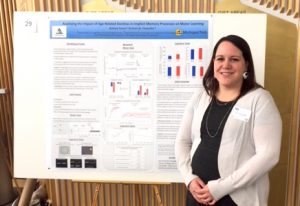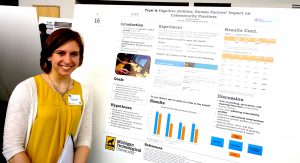 The Department of Cognitive and Learning Sciences and the William G. Jackson Center for Teaching and Learning (CTL) have developed a new course entitled “Foundations of Online Teaching.” Beginning in Spring 2018, it will be offered in spring and summer semesters as ED5101, but this summer, it will be offered during Track A as a special topics (ED5540) section with the same name.
The Department of Cognitive and Learning Sciences and the William G. Jackson Center for Teaching and Learning (CTL) have developed a new course entitled “Foundations of Online Teaching.” Beginning in Spring 2018, it will be offered in spring and summer semesters as ED5101, but this summer, it will be offered during Track A as a special topics (ED5540) section with the same name.
In order to promote best practices in online teaching, the CTL has been authorized to annually provide $500 in additional compensation to up to 20 faculty members and GTAs who enroll in this course to improve their online instruction. Full-time faculty must enroll in the course as normal and may refer to the Employee Education Program or tuition reimbursement information. GTAs or part-time faculty would need to enroll in the course as a normal one credit class.
All participants wishing to receive compensation must, no later than the end of the first week of the course, provide communication from the appropriate chair or dean indicating their involvement in online teaching within their unit (should the compensation limits be reached, the time of receipt of this letter will determine priority). Individuals must also complete the course with a B grade or better before receiving the additional compensation.
In addition, those completing the course (or who can show equivalent education/experience) will become exclusively eligible for additional grant money (beginning late Summer 2017) to support the development or revision of online courses.
Funding for this program comes from the Online Learning Technology Fee through a cooperative effort between Information Technology and the CTL. Questions about Michigan Tech’s Employee Education Program can be directed to Benefits Services. Questions about the course or the $500 in additional compensation can be directed to Tom Freeman.

